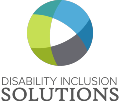As the global workforce navigates changes to where and how we do business during the Coronavirus (COVID-19) Pandemic, I wanted to share some tips for my brothers and sisters in the disability community on how to be effective when working from a remote location. These simple steps will greatly impact your ability to successfully manage your workday, deliver on crucial projects, and feel connected with your colleagues.
1. Develop a Routine
Routines are important for everyone, but for some people with disabilities, those routines are crucial to being productive at work. I have a saying I often share with people I am preparing for interviews or training on how to be effective in the workplace: take control of the things you have control over, and then you will be better prepared to handle those things out of your control when they arise.
Whether you are a person with a mental health disability, a neurodiverse disability, or a chronic health disability, routines play a large part in how you manage your life. In these times of almost constant change to work routines, it is easy to let other positive patterns of behavior be disregarded. My recommendation is to not let that happen. Instead, develop a schedule. Consider these elements:
- Bed time/Wake time
- Breaking up your work day to meet the needs of your position
- Identifying specific times to eat meals
- Going outside for a walk or to sit on your porch
- When personal assistants should come
- Taking medications
- Determining the best time for daily grooming
Create a daily checklist of things you need to accomplish and the times you want to accomplish them by.
2. Designate a Workspace
Another action you can take to help you to stay focused and be productive is to designate a specific place in your home to work from. If possible, refrain from selecting high traffic areas of the house such as the kitchen or living room. Take time to ensure your workspace is uncluttered and comfortable. Select a chair that offers strong support, and make sure you have good lighting.
Set up your workspace with a water or coffee, charge your phone and review your daily task list. If you have multiple people in your household that are working from home, try to carve out spaces that allow for some privacy, so you do not have to be concerned about overlap of teleconferences and meetings. If you cannot do that, wear headphones when not on a call to limit distractions.
3. Establish Boundaries
Minimize interruptions by establishing boundaries for when you are available to engage in non-work activities with friends and family members. Determine specific days and times for check-in calls, and relay your ‘at work’ hours to others. Once you establish a boundary, do not be the one to break it. By being available when you say you will be and not reaching out during ‘at work’ hours will help to reinforce the considerations you are requesting the others to take.
If you are working from home with another person, establish specific times when the two of you are available to spend time with each other, such as meals or time to get out and take a walk or watch a shared television program. See if you can line up breaks to check in with each other. If not, be as respectful of the other person working from home as you want them to be for you.
If you are a parent navigating having your children home while you are working, some effective practices include:
- Planning activities and projects the children can do that do not require supervision
- Creating a boredom box that has a variety of items in it for kids to explore
- Giving them specific times to spend with you
- Taking time to exercise as a family on breaks or before or after work
- Planning family mealtimes
- Prepping easy-to-grab, kid-friendly snacks
- Rewarding good behavior
4. Stay Connected
Maintaining contact and communicating precisely with your colleagues will greatly impact productivity. Due to flexible schedules, you may now be collaborating on projects with team members who are no longer working the same hours as you, making it harder to get things done.
Provide a daily report of the status of important tasks assigned to you along with any questions you need answered from your colleagues. Let them know of a specific times you will be available over the phone or text, during their working hours if they need to ask you questions. Likewise, share times when you know you will not be available. Remember, when communicating via email and text to be thoughtful with your language so the person knows you are not angry or frustrated with their questions.
Take time to inquire how your colleagues are doing and remind them of how much you appreciate their contributions to the project, make plans for when you get back to the office, and be friendly.
5. Communicate Accommodation Needs
If you need an adjustment to your workplace accommodations or need accommodations for the first time, don’t be silent. While flexibility is important, it is also important to be able to be consistent with job performance. Remember, it is your responsibility as an employee to request an accommodation. If you do not speak up, they will not know that you need assistance. Talk with your supervisor or manager and take the correct steps to submit your accommodation request. Ensure they understand the reason you need the accommodation. For example, one of our employees worked out schedule flexibility to allow him to adjust with regards to sleep patterns being affected by a change in work hours. This allowed the employee to take extra breaks throughout his scheduled work time, as long as he met his required hours and remained productive.
The global workforce is facing feelings of isolation, stress, anxiety, and disruption to critical social interactions at an unprecedented scale. Employers who are ready to accommodate those with on-going or ‘situational’ mental health considerations during the coronavirus pandemic will be most effective in supporting the emotional well-being and productivity of their associates.
iDisability can help. In support of employers, we are offering our Accommodating Individuals with Mental Health Disabilities and Emergency Preparedness for Individuals with Disabilities eLearning modules for free. Download your copy of the free modules now at https://idisability.benderconsult.com/.
As we all navigate this confusing time, supporting others is crucial to our success within the disability community. We will be continuing to share content via this newsletter and other outreach channels to support you.





0 Comments